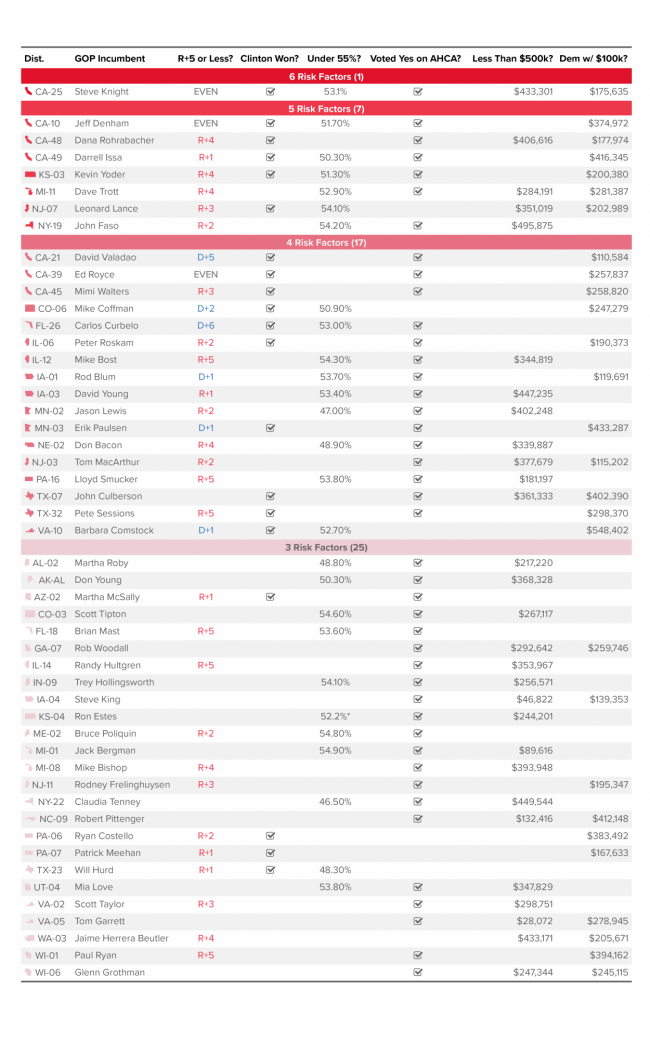
Multiple indicators, including generic congressional ballot polls, President Trump's tepid approval recent special election results, point to broad midterm danger for Republicans. But as we noted earlier this month, at this point in the cycle it can be trickier to predict individual races than the national environment. Are Democrats within range of picking up the 24 seats they need? Yes, but it's not obvious which races will materialize and which won't.
To win the House, Democrats will probably need to put at least 50 GOP seats in play. That will require some good fortune - especially Republican retirements from swing seats - and candidates who fit their districts and can race money. So far, of the 48 GOP incumbents in districts with Cook PVI scores of R+5 or more Democratic, only one - Rep. Ileana Ros-Lehtinen (FL-27) has announced her retirement.
That count is likely to go up this fall. Of the 26 House incumbents who ultimately retired in 2016, only five had announced their plans by this point in 2015. Still, Democrats will also need to take the fight to dozens of battle-ready Republican incumbents. As of June 30, the close of the second fundraising quarter of the year, there were already 35 GOP-held seats where Democratic candidates had at least $100,000 cash on hand.
In the absence of race-by-race polling but armed with fresh FEC data, we have created a table listing six "risk factors" to gauge Republican incumbents' political health and readiness for a wave election. In the past, those incumbents with a high numbers of risk factors have typically become the ripest targets, while those with fewer risk factors could still be vulnerable but may be better able to withstand a hostile political environment.
The six risk factors are:
- Sits in a district with a Cook PVI score of R+5 or more Democratic.
- Sits in a district that Hillary Clinton carried in 2016.
- Received 55 percent of the vote or less in the 2016 election (or a 2017 special election).
- Voted in favor of the American Health Care Act in the May 4 roll call vote.
- Had less than $500,000 in cash on hand for reelection as of June 30.
- Has a Democratic opponent with at least $100,000 in cash on hand as of June 30.
Only one incumbent, Rep. Steve Knight (CA-25), has all six risk factors. Seven incumbents have five risk factors, 17 incumbents have four, and 25 incumbents have three. It's important to remember that this is not a hard and fast list, and over the course of the cycle, many incumbents will add or subtract risk factors based on fundraising and key congressional votes. Download a PDF of our chart here



Subscribe Today
Our subscribers have first access to individual race pages for each House, Senate and Governors race, which will include race ratings (each race is rated on a seven-point scale) and a narrative analysis pertaining to that race.